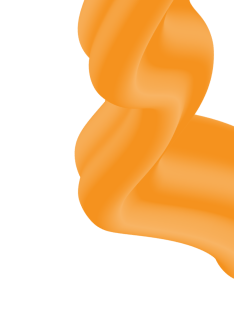Bachelor of Arts (Honours) Early Childhood Education
IDEA College - Courses


Start dateTBC |
BasisFull-Time, Part-Time |
CertificationMQF Level 6 |
PrerequisiteMQF/EQF level 4 |
LocationIn-Person |
Duration30 Months FT/ 46 Months PT |
Introduction
In recent years, Early Childhood Education (ECE) in Malta has gained importance and is frequently being acknowledged as providing crucial foundations as well as being an important proponent of lifelong learning. A practitioner working in ECE needs to be equipped with the appropriate competencies, knowledge, and skills as well as attitudes and characteristics on how to approach the field. Apart from being skilled in how to approach the field, a practitioner also needs to understand the ECE field from a historical, philosophical, and sociological perspective while acknowledging the limitations and opportunities related to the local context.
The course provides learners with a sound understanding of how to provide and foster quality education within ECE settings in Malta (Kindergarten settings). By doing so, the course paves the way for practitioners to be able and fully competent to work with young children up until the completion of Kindergarten education. The course may attract both those who are about to embark on the journey of ECE as well as more experienced practitioners who would like to better their practice while following an accredited course. During the course, the course participants will be provided with multimodal ways how to approach the field while presenting them with various pedagogical tools, ways to collaborate with other stakeholders, assessment strategies to observe and document young children’s learning and case studies to reflect on their practice. The course participants will immerse themselves in debates about contemporary issues in the ever-changing field of ECE.
Holders of the MCAST MQF5 Higher Diploma in Advanced Studies in the Early Years qualify for a shorter route requiring only 96 ECTS to complete.
What you'll learn
For Knowledge:
The learner will be able to:
- Gain an overall perspective of Early Childhood Education (ECE) on an international, European, and local level (Module 1)
- Review the foundations and roots of ECE through a historical, philosophical, and sociological perspective (Module 2)
- Discuss and consolidate knowledge with regard to the various areas of development (physical, cognitive, emotional, linguistic, social) of young children (Module 3)
- Identify appropriate research tools to strengthen your own academic writing (Module 4)
- Show awareness of the most relevant contemporary issues within the ECE field (Module 5)
- Navigate the various pedagogical tools and documentation which are made use of within ECE (Module 6)
- Analyse the important role of learning through experiential immersion in ECE (Module 7)
- Discuss and evaluate how the Emergent Curriculum is responsive to the interests of young children (Module 8)
- Gain knowledge relating to the core functions of an ECE setting and one’s own responsibilities (Module 9)
- Explore ways how to promote inclusivity and diversity in ECE contexts (Module 10)
- Gain a consolidation of the fundamentals of research including research ethics and diverse research approaches (Module 11)
- Assess how different elements (such as play, physical education, etc.) can contribute to creative expression in ECE (Module 12)
- Identify the core elements for healthy, safe and secure environments in ECE (Module 13)
- Evaluate the benefits and challenges of bilingualism in ECE (Module 14)
- Examine different tools, resources and approaches which may be used in multimodal teaching in ECE (Module 15)
- Review sustainability practices in ECE settings in Malta (Module 16)
- Demonstrated advanced knowledge relating to different leadership styles and theories (Module 17)
- Navigate the complexity of the ECE practitioner’s personal and professional identity (Module 18)
- Examine and adopt inclusive approaches for involving various stakeholders during professional practice (Module 19)
- Explore the different types of research which may be conducted in ECE and the different research methodologies and tools which may be used (Module 20)
- Critically discuss the importance of concepts such as voice, participation, and agency in childhood (Module 21)
- Appraise the role and significance of STEM in ECE (Module 22)
- Analyse the traits which define transition processes in ECE (Module 23)
- Examine the influence of technology on the lives of young children (Module 24)
- Assess the role of the main stakeholders in ECE and explore ways how to collaborate with such stakeholders (Module 25)
- Delve into an advanced exploration of the workings of ECE settings (Module 26)
- Identify a gap in literature/research relating to the field of ECE and formulate a topic to address in the dissertation (Module 27)
- Identify the different roles and responsibilities of the ECE practitioners while having a solid understanding of theories of learning, child development, and play. · Analyse and describe the impact and implications of legislation and policy documents to help the practitioner make informed choices about young children in their care
- Demonstrate an understanding of various pedagogical tools and assessment methodologies for managing an ECE setting
For Skills:
The learner will be able to:
- Apply the canonical theories of ECE (Module 1)
- Research historic, sociological, and philosophical approaches to ECE (Module 2)
- Promote healthy and holistic child development in ECE (Module 3)
- Display good use of academic writing, using an appropriate scholarly approach (Module 4)
- Make use of various resources (such as academic literature) to discuss contemporary issues in ECE (Module 5)
- Produce documentation based on careful observation of young children (Module 6)
- Promote an ECE setting which is conducive to experiential learning (Module 7)
- Move towards project-based and problem-based learning through the Emergent Curriculum (Module 8)
- Document basic reflections and potential self-recommendations after his/her first professional experience (Module 9)
- Make use of the right tools to conduct research relating to the everchanging multicultural and inclusive education (Module 10)
- Formulate research questions and design appropriate research (Module 11)
- Be an active promoter of creative awareness and expression in ECE settings and evaluate and implement ways how this can be achieved (Module 12)
- Collaborate in securing healthy, safe, secure, and positive spaces within ECE settings (Module 13)
- Prepare learning experiences that respect bilingualism in ECE (Module 14)
- Help young children explore different modes of communication and representation (Module 15)
- Help young children engage in sustainable practices to ensure the well-being of the environment (Module 16)
- Have an active part in the decision-making process as a leader in ECE (Module 17)
- Formulate a critical mindset to reflect on one’s own (professional and personal) identity in ECE (Module 18)
- Analyse practical issues in the daily work of an ECE practitioner (Module 19)
- Demonstrate the ability to design a research proposal (Module 20)
- Promote and extend young children’s rights to participate in various settings (Module 21)
- Design meaningful hands-on experiences which induce STEM learning (Module 22)
- Communicate with young children to identify and talk through the difficulties of transitions whilst proposing possible solutions (Module 23)
- Make use of different digital tools which promote children’s learning (Module 24)
- Communicate more effectively with peers and stakeholders (e.g., children, parents, family members, managers, teachers, etc.) within the ECE setting (Module 25)
- Engage in a sophisticated practice of self-reflection and continuous self-improvement (Module 26)
- Produce a bachelor’s dissertation addressing a specific problem in the field of ECE (Module 27)
- Apply an in-depth understanding of children’s learning to generate flexible and innovative responses to support children’s learning in practice
- Demonstrate effective use of a diverse range of pedagogical tools to support learning among young children, families, and colleagues working in early childhood education
- Demonstrate the required pedagogical, collaborative, and ethical skills that an ECE practitioner must possess
- Promote diversity and inclusion amongst young children and different stakeholders (parents, family members, teachers, etc.) in ECE settings
Prerequisites
Candidates who apply for this course will possess:
- A full qualification at MQF level 4 in Early Childhood Education and SEC/Ordinary Level passes in Mathematics, English and Maltese. OR
- 2 Advanced Level passes and 2 Intermediate Level passes including 2 subjects from Mathematics, English and Maltese.
- A pass at SEC/Ordinary Level in the subject that is not presented at advanced/intermediate level from the 3 specified above.
In the case of students who do not possess all the formal required academic qualifications, then the RPL process could be applied such that if evidence of equivalent learning, related to the area of study of this programme, is found then the applicant could still be accepted in the course. Such an RPL process will subject applicants to an interview held with a board of experts within the field, chosen specifically by IDEA Academy, so as to verify their experiences and prior learning.
Furthermore, it will be advised to students at entry point that before going on placements, they will need to be in possession of:
- The POMA (Protection of Minors Application) certificate.
- A first-aid certificate prior to commencing placement practice.
- A valid police conduct certificate.
Target Audience
This programme has the following target groups:
- Individuals who are approaching the field of Early Childhood Education
- Individuals who have been working in the field as a means of capacity-building
- Individuals looking to advance to the Kindergarten Educator III role
Career Paths
This programme aims to equip the target audience with the knowledge, skills and competencies listed in this application.
The possible posts that this course prepares for are:
- Kindergarten Educator III
Modules
You are required to complete all 26 compulsory modules (162 ECTS), as well as the dissertation (18 ECTS) to fulfil the requirements of this bachelor’s degree.
How you will be assessed
Overall assessment of this programme consists of two main components:
- Modular Assessment carries 90% of the final grade.
- The Dissertation carries 10% of the final grade.
Course Provider
The curriculum is deeply rooted in industry needs, equipping students with practical skills and knowledge essential for success in their careers. The Academy distinguishes itself with personalized attention, access to expert mentors, an extensive resource library, and flexible payment options.
IDEA College offers a diverse range of programs, from introductory courses to advanced degrees from MQF/EQF level 4 all the way through Doctorate programs, all within a supportive, student-first environment.
